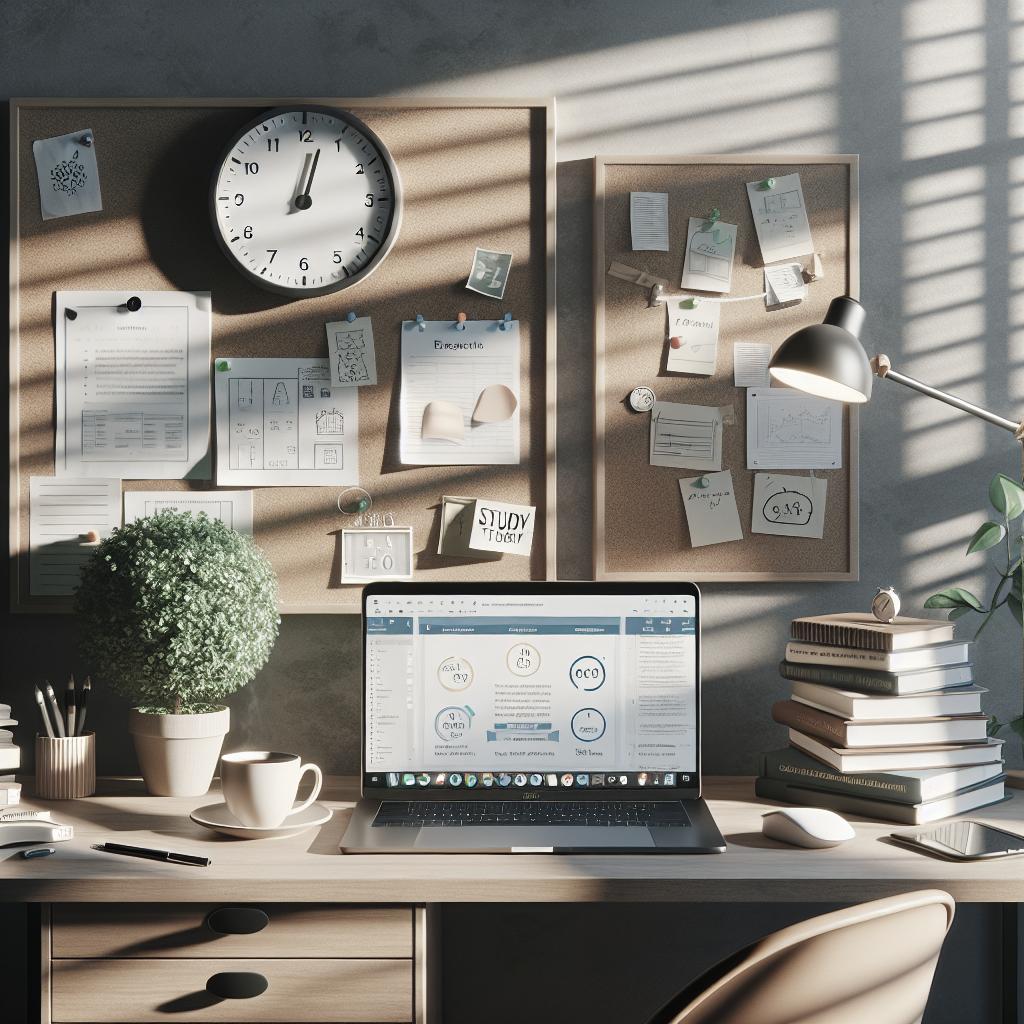“`html
Creating a Productive Study Environment: The Essential Elements
Crafting an effective study environment involves more than just finding a quiet place to read. By understanding the essential elements of productivity, you can transform any area into an ideal learning zone. Start by carefully selecting your study space and personalize it to suit your needs. Removing distractions is crucial, as is being prepared with the right materials. Remember, the internet can either be an invaluable tool or a potential distraction, depending on usage. Establishing a schedule with specific, achievable goals will further enhance productivity. Keep these elements in mind, and you’ll be well on your way to creating an atmosphere conducive to learning success.
6 Shows You Must Watch for Home Cleaning Motivation
Cleaning can be tedious, but some TV shows can inspire you to turn it into a rewarding task. For instance, “Tidying Up with Marie Kondo” popularized the KonMari method, encouraging viewers to see joy in organizing their spaces. Likewise, “Clean House” offers a playful take on decluttering, making the prospect of a tidy home inviting.
Reality shows like “Hoarders” highlight the extreme consequences of not maintaining a clean environment, pushing viewers toward regular tidiness. Meanwhile, “Queer Eye” combines makeovers with life motivation, showing how a clean space can ripple into personal transformation. Lastly, “How Clean Is Your House?” and “The Home Edit” showcase dramatic before-and-after transformations, leaving viewers eager to pick up a mop and start cleaning.
Choose the Right Study Space
Choosing the right study space is fundamental to productivity. Ideally, this space should be quiet, comfortable, and free of unnecessary distractions. This could be a dedicated room, a public library, or a corner of your home designated specifically for studying.
Consider lighting and ergonomic furniture as they can significantly affect your focus and stamina during study sessions. Natural light is ideal, but if that’s unavailable, invest in good quality lighting that won’t strain your eyes. Choose a chair and desk that support your posture, reducing discomfort during extended study periods.
Make It Your Own
Personalizing your study space can increase your comfort and motivation. Add inspirational quotes or visuals that align with your academic goals to keep you motivated. Plants can add a calming presence, promoting a serene atmosphere beneficial for concentration.
Organizational tools like bookshelves, document trays, and organizers tailor the space to your needs, minimizing clutter and making it easier to find materials. The goal is to create an environment that balances comfort and functionality, reflecting your personal style while supporting your educational pursuits.
Remove Distractions
Distraction is the enemy of productivity. Identifying what commonly distracts you is vital to creating a successful study environment. For some, it’s electronic devices; for others, it’s noise or clutter. Employ strategies tailored to your needs, whether that means using noise-canceling headphones or apps that block non-essential websites.
Organize your workspace in a way that limits visual clutter. Everything should have its place, reducing the temptation to focus on anything other than your studies. Ensuring your study materials are the only things within reach keeps your mind on task and off potential distractions.
Be Prepared
Preparation is crucial for maintaining a productive study session. Ensure you have all necessary materials ready before you begin, from books and notes to writing utensils and snacks. Having everything you need at hand minimizes interruptions.
It’s also important to prepare mentally. Take a few moments to set your intention for the study session, reviewing any goals or tasks you need to accomplish. This mental preparation helps foster a focused mindset and align your efforts with your study objectives.
Internet Matters
The internet can be both a valuable resource and an endless source of distractions. Structure your online activities to support your studies, starting by bookmarking useful academic websites and utilizing online databases for research.
Implement strategies to manage time spent online effectively. Set boundaries by using browser extensions that limit access to distracting social media sites and digital tools that help track your online productivity. This allows you to harness the positive aspects of the internet while minimizing potential downsides.
Set a Schedule
Establishing a schedule not only helps prioritize tasks but also builds a routine that reinforces productive study habits. Break your study time into manageable blocks, incorporating breaks to avoid burnout. Small rewards during breaks can provide motivation and relaxation.
A well-structured timetable aligns with your peak productivity cycles, providing time to absorb new information effectively. Adapting your schedule as needed ensures flexibility, but sticking to a routine, whenever possible, builds consistency crucial for long-term academic success.
Be Specific and Set Goals
Specificity in goal-setting can elevate your study sessions. Instead of vague intentions like “study math,” set a clear objective such as “complete algebra assignments” or “review calculus chapter 5.” Achieving these smaller tasks provides a sense of accomplishment and forward momentum.
Break larger goals into smaller, more manageable milestones, tracking your progress along the way. This approach not only simplifies complex tasks but also enhances motivation by providing positive feedback through completed milestones.
Things To Keep In Mind
As you fine-tune your study environment, remember that adaptability is key. What works initially might need adjustments over time based on your evolving needs and tasks. Be open to altering your space and methods to optimize productivity continually.
Lastly, balance is crucial. While productivity is the goal, burning out is counter-productive. Ensure your study habits include time for relaxation and socialization. A well-rounded approach supports sustained productivity and well-being.
Future Prospects
| Element | Description |
|---|---|
| Right Study Space | Quiet, comfortable, and lighting considerations. |
| Make It Your Own | Personalization to increase comfort and motivation. |
| Remove Distractions | Limit electronic device usage and visual clutter. |
| Be Prepared | Ensure all study materials are at hand, prepare mentally. |
| Internet Matters | Utilize internet as a resource, set boundaries for usage. |
| Set a Schedule | Create a routine with breaks, consider productivity cycles. |
| Be Specific and Set Goals | Clear objectives and manageable milestones. |
| Keep In Mind | Adaptability, balance between productivity and relaxation. |
“`


